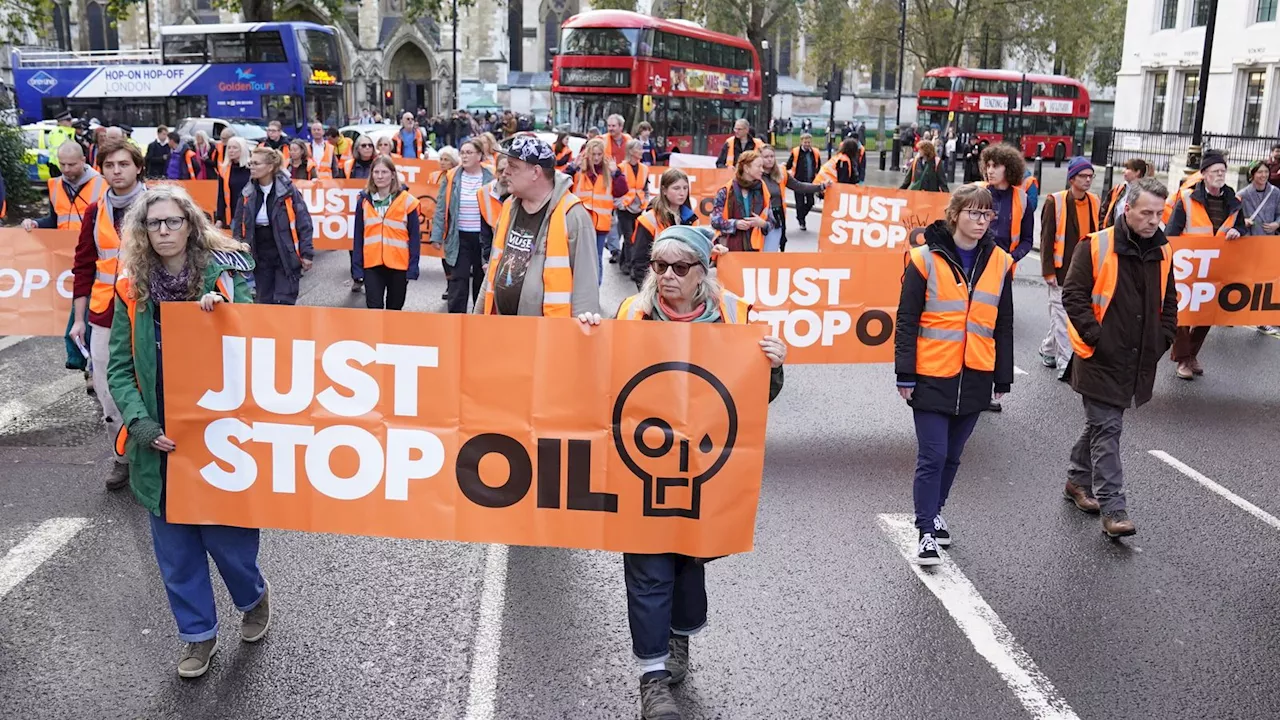Fossil fuel emissions threaten a key climate threshold sooner than previously thought, a report says.
Human fossil fuel emissions are threatening a key climate threshold twice as quickly as previously thought, a new report says.They say record emissions of carbon dioxide over the past three years are a key factor., temperatures for 2023 as a whole are expected to be close to 1.5C above the pre-industrial level, before the world first started heavily using coal, oil and gas around 1850.
The 1.5C figure is a key component of the promises made by political leaders when they signed the Paris climate agreement in 2015. They contribute heavily to air pollution but have an unexpected benefit for the climate because they help cool the atmosphere by reflecting sunlight back into space. The researchers say this new understanding of the role of aerosols removes 100bn tonnes from the remaining 1.5C budget. Combined with the extra carbon and some other small adjustments, this brings the total remaining budget down to 250bn tonnes.
"There are no socio-technical scenarios globally available in the scientific literature that would support that that is actually possible, or even describe how that would be possible," said Prof Joeri Rogelj, also from Imperial College London.
United Kingdom Latest News, United Kingdom Headlines
Similar News:You can also read news stories similar to this one that we have collected from other news sources.
 EU Launches Carbon Border Adjustment Mechanism to Encourage Cleaner Industrial ProductionThe EU has implemented the Carbon Border Adjustment Mechanism (CBAM) to put a fair price on carbon emitted during the production of carbon-intensive goods entering the EU. The policy aims to protect domestic producers and encourage cleaner industrial production in non-EU countries. The CBAM will apply to various carbon-intensive products and is expected to dissuade EU producers from investing overseas to avoid environmental emission regulations. The US plans to start taxing exports in carbon-intensive sectors in 2026, making the EU's policy relevant for US trade policies.
EU Launches Carbon Border Adjustment Mechanism to Encourage Cleaner Industrial ProductionThe EU has implemented the Carbon Border Adjustment Mechanism (CBAM) to put a fair price on carbon emitted during the production of carbon-intensive goods entering the EU. The policy aims to protect domestic producers and encourage cleaner industrial production in non-EU countries. The CBAM will apply to various carbon-intensive products and is expected to dissuade EU producers from investing overseas to avoid environmental emission regulations. The US plans to start taxing exports in carbon-intensive sectors in 2026, making the EU's policy relevant for US trade policies.
Read more »
 Scottish Minister to Introduce Legislation to Tackle Carbon Emissions from Cruise ShipsLorna Slater, the Minister for Green Skills, Circular Economy and Biodiversity, plans to empower local authorities to charge visiting cruise ships a levy to tackle carbon emissions and raise funds. The move aims to ensure that communities hosting cruise ships receive the investment they deserve, with the intention of charging the most polluting ships more. This policy aligns with global efforts to reduce emissions from the sector, as seen in Barcelona's ban on cruise ships and Norway's restriction on non-zero emission ships in its fjords.
Scottish Minister to Introduce Legislation to Tackle Carbon Emissions from Cruise ShipsLorna Slater, the Minister for Green Skills, Circular Economy and Biodiversity, plans to empower local authorities to charge visiting cruise ships a levy to tackle carbon emissions and raise funds. The move aims to ensure that communities hosting cruise ships receive the investment they deserve, with the intention of charging the most polluting ships more. This policy aligns with global efforts to reduce emissions from the sector, as seen in Barcelona's ban on cruise ships and Norway's restriction on non-zero emission ships in its fjords.
Read more »
 Carbon Markets Expected to Exceed $800 Billion Despite Falling Trade VolumesESG investments have slowed down, but carbon markets are expected to grow by 5% this year, reaching a value of over $800 billion. Carbon markets allow companies and individuals to compensate for their greenhouse gas emissions by purchasing carbon credits.
Carbon Markets Expected to Exceed $800 Billion Despite Falling Trade VolumesESG investments have slowed down, but carbon markets are expected to grow by 5% this year, reaching a value of over $800 billion. Carbon markets allow companies and individuals to compensate for their greenhouse gas emissions by purchasing carbon credits.
Read more »
 The World's Only Carbon Capture Plant Teaches Thousands of StudentsInside a futuristic building, a unique carbon capture plant teaches students about the emerging industry of carbon capture and storage (CCS). Despite its potential, CCS is expensive and energy-intensive, leading to debates among environmentalists about its effectiveness in reducing carbon dioxide emissions.
The World's Only Carbon Capture Plant Teaches Thousands of StudentsInside a futuristic building, a unique carbon capture plant teaches students about the emerging industry of carbon capture and storage (CCS). Despite its potential, CCS is expensive and energy-intensive, leading to debates among environmentalists about its effectiveness in reducing carbon dioxide emissions.
Read more »
 A glimpse into the future: Carbon capture in KensingtonA carbon capture and storage facility at Imperial College is teaching students from all over the world.
A glimpse into the future: Carbon capture in KensingtonA carbon capture and storage facility at Imperial College is teaching students from all over the world.
Read more »
 Just Stop Oil protesters arrested near to Houses of Parliament in WestminsterMore than 60 activists from the climate group are held on suspicion of public order offences in Parliament Square, with one saying that their demands were 'no new licences for fossil fuels'.
Just Stop Oil protesters arrested near to Houses of Parliament in WestminsterMore than 60 activists from the climate group are held on suspicion of public order offences in Parliament Square, with one saying that their demands were 'no new licences for fossil fuels'.
Read more »
